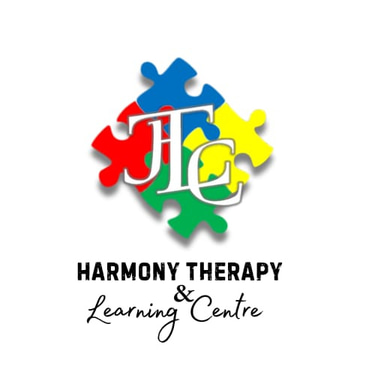Recent Breakthroughs in Autism Research: Technology, Medicine, and Access for Professionals
3/1/20254 min read


Overview of Recent Breakthroughs in Autism Research
Autism research has witnessed significant advancements in recent years, particularly in the areas of technology and medicine. One of the most promising areas of development involves innovative diagnostic tools that improve early detection of autism spectrum disorders (ASD). For instance, cutting-edge brain imaging techniques, such as functional MRI and EEG, are being utilized to identify subtle neurobiological markers associated with autism. These tools offer new insights into the brain's structure and functioning, facilitating timely interventions that can enhance the developmental trajectory of affected individuals.
In the realm of treatment, several groundbreaking therapies have emerged, aimed at addressing the core symptoms of autism. One notable approach is the application of behavioral intervention strategies that are increasingly integrated with technology. For example, mobile applications and virtual reality environments are being used to support social skills development, providing users with engaging and immersive experiences. These platforms allow individuals with autism to practice social interactions in safe, controlled settings, thereby boosting their confidence and competence in real-world situations.
Furthermore, recent clinical trials have unveiled potential pharmaceutical interventions that target specific neurochemical pathways. Medications aimed at alleviating anxiety and improving attention span have shown promising results, suggesting a new avenue for symptom management. These findings highlight the importance of a multi-faceted approach in treating autism, combining behavioral, technological, and medical strategies.
Overall, the convergence of technology and medicine in autism research is facilitating unprecedented advancements. Continued exploration of these breakthroughs will not only enhance the quality of life for individuals with autism but also expand the understanding of the condition itself, paving the way for future research and clinical practices that are informed by evolving scientific knowledge.
Innovative Technologies Supporting Autism Intervention
The integration of innovative technologies has revolutionized autism intervention, providing novel approaches to support individuals with autism spectrum disorder (ASD). Various tools, from mobile applications to wearable devices, are being developed to assist not only patients but also caregivers and professionals in delivering more personalized care. These technologies enhance communication, social interaction, and behavioral support, fostering better outcomes for those on the autism spectrum.
Mobile applications designed for autism intervention typically focus on improving communication skills and teaching social norms through interactive learning. For instance, certain apps utilize visual aids and interactive exercises to engage users in practice scenarios, which can supplement traditional therapy. By harnessing the power of technology, these applications provide users with real-time feedback, enabling them to adapt their learning processes to fit individual needs better.
Wearable devices, such as smartwatches and sensors, are gaining prominence in autism care. These devices can monitor physiological signals and provide data on emotional states, which can help caregivers recognize stress levels in individuals with autism. By collecting and analyzing such data, caregivers can employ timely interventions to prevent meltdowns or enhance comfort levels in various settings. Moreover, these wearables can facilitate communication by allowing individuals with autism to express their needs through pre-set messages or alerts.
Virtual reality therapies represent another cutting-edge approach to autism intervention. Through immersive environments, individuals can engage in simulated social interactions, gradually becoming more comfortable navigating real-life situations. These therapies allow users to practice social skills in a safe, controlled manner, which can significantly enhance their confidence and competence in public settings.
Furthermore, the advent of artificial intelligence (AI) and machine learning is set to redefine autism diagnosis and treatment. AI algorithms can analyze behavioral patterns, enabling professionals to tailor interventions based on individualized needs and track progress over time. By employing these technologies, caregivers and clinicians can provide more efficient and effective support for individuals with autism, paving the way for a brighter future.
Global Access to New Autism Research and Resources
Access to the latest autism research and resources is crucial for professionals in the field, as it enables them to implement effective interventions and provide appropriate support for individuals on the autism spectrum. A variety of platforms have emerged to facilitate this access, including online databases, academic journals, and research hubs dedicated to autism studies. These resources not only house groundbreaking findings but also ensure that professionals remain informed about advancements in autism research, making it easier to integrate new knowledge into practice.
Webinars and virtual conferences have also gained popularity as essential tools for autism professionals seeking to enhance their understanding of emerging research. These online events offer an opportunity for experts to share insights, discuss new methodologies, and present case studies that highlight successful interventions. By participating in these forums, professionals can engage with a global community devoted to improving the lives of individuals with autism. Many organizations have made it a priority to host events focused on the dissemination of autism research, creating a platform for collaboration among researchers, practitioners, and families.
Community collaboration and global partnerships play a significant role in bridging gaps in knowledge and training, especially in low-resource settings. Initiatives that encourage the sharing of effective practices and resources are vital in enhancing the capacity of autism professionals around the world. Organizations such as the Autism Society and the World Autism Organization are dedicated to promoting essential training and resource distribution, helping professionals in under-served regions access critical research and support networks. By working together, these organizations foster a supportive environment where knowledge can be shared, ultimately advancing the field of autism intervention.
Empowering Autism Professionals in Their Research Endeavors
In the rapidly evolving field of autism research, it is crucial for professionals to remain updated on the latest breakthroughs in technology, medicine, and treatment methodologies. Continuous professional development is essential not only for personal growth but also for enhancing the quality of care provided to individuals with autism. One effective strategy is to engage in lifelong learning through various avenues such as online courses, workshops, and webinars that focus specifically on autism research and intervention techniques.
Networking with fellow autism professionals can serve as a powerful catalyst for research endeavors. Attending conferences and seminars, whether in-person or virtual, allows professionals to exchange ideas, share experiences, and discuss the latest advancements in the field. Establishing connections with experts and peers facilitates collaboration, which can lead to innovative research projects that enhance understanding and treatment of autism spectrum disorders.
Another significant resource for ongoing education involves accessing accredited online courses and certifications tailored to autism treatment. These programs often feature content developed by leading researchers and practitioners, enabling professionals to translate new insights into their practice effectively. By incorporating contemporary findings and methodologies into their work, autism professionals can provide evidence-based support that meets the evolving needs of individuals with autism and their families.
Promoting a culture of research among practitioners is vital to the growth of the autism treatment community. Encouraging professionals to contribute to research initiatives fosters a sense of ownership and accountability. By sharing their findings and experiences, practitioners can help broaden the collective knowledge within the field and highlight the diverse perspectives necessary for understanding autism comprehensively. The inclusion of varied voices, such as those of black Jamaican autism professionals conducting research, emphasizes the importance of diversity and representation in creating inclusive research environments.
Empowering children with diverse learning needs.
info@harmonytherapyandlearning.com
+1-876-835-8403
© 2025. All rights reserved.
